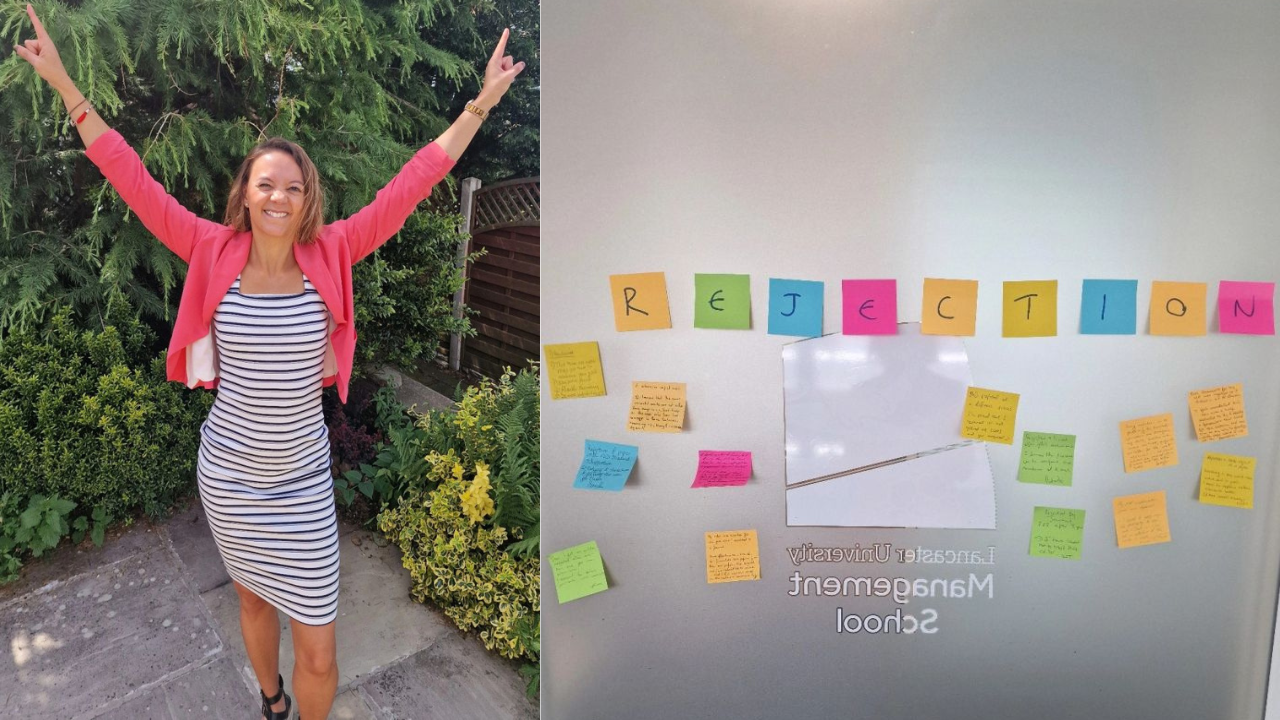Being a complete beginner is easy. You’re expected to be rubbish because you’ve literally never done what you are trying to do before. What’s harder is being a beginner-ish. This is when you’ve collected some experience under your belt and you know enough to know better but you can’t do better yet. Being a beginner-ish is when the sneaky saboteur of self-judgment kicks in and if you’re not careful, this can derail you completely.
This is a story of how I’m a beginner-ish in both salsa and entrepreneurship and how I am learning to overcome my self-judgment and not let it hold me back, or keep me hiding in the corner.
The dangers of being a beginner-ish
I started salsa dancing in February and although I love a boogie with friends on the dance floor and have some rhythm, I quickly realised that structured partner dancing was totally different. In salsa I got the timings wrong, I stepped on my partner’s toes, I missed moves completely. But it was all fine because I was brand new and gave my myself a pat on the back for being brave enough to even try and turn up in the first place.
After attending several classes, I transitioned from beginner to beginner-ish and noticed that instead of giving myself grace for making mistakes, I berated myself for not meeting my own newly formed expectations.
For example, rather than congratulate myself for simply attending class, I started thinking instead, “how am I so stupid that I still can’t do this basic left turn correctly after 3 months?!”
This beginner-ish phase is a dangerous one when embarking on a new project because self-criticism can get in the way of your enjoyment which then increases the risk of quitting if you don’t carefully and compassionately manage it.
It’s also dangerous because not only do you judge yourself negatively for your performance, you start imagining other people judging you negatively too and then you feel bad for not being good enough for them. This is a doubly vulnerable place to be.
To illustrate this point, recently I went to a salsa party in Blackpool Tower and realised that as a beginner-ish, I was in the vast minority of party goers. There were many good, great and excellent dancers and when I danced with them I kept getting things wrong. I missed moves, turned the wrong way or froze entirely. I apologised profusely and then felt embarrassed. I felt that I was a burden and that my being there had an objectively negative effect on their experience.
I also felt this tension between wanting to enjoy myself and practice dancing but feeling bad about being the person that my partner had to dance with!
So what did I do?
I felt all of those uncomfortable feelings and then did not let them stop me from dancing.
It took bravery to walk onto that dance floor and allow myself to enter into a perfect stranger’s world – albeit for the duration of a single song – knowing that they would 100% find it more enjoyable to dance with literally anyone else.
(Of course I recognise that there may have been some positives in our overall dancing experience – I consider myself rather friendly and fun company for example, but I’m talking about enjoyability related to pure salsa skill.)
It took bravery to face my ego and objectively, by all accounts not be good enough.
It took bravery to feel the cringe, discomfort and awkwardness with each new partner as I inevitably got things wrong and perceived that I disappointed or frustrated them.
I did not hide away in the corner – even though I really, really wanted to.
I owned my beginner-ish because the only way to get past it is to keep going through it. The price you pay for mastery of any skill is in hours of practice and a boat load of uncomfortable feelings.
Applying lessons from the dance floor to entrepreneurship
It is the same in entrepreneurship as it is in salsa. We must show up in business as our imperfect, work-in-progress selves and be brave enough to put ourselves out there on but instead of getting on the dance floor it is on social media, podcasts or at networking events.
We must be brave to be able to take up space in our audience’s eyes, ears and minds even if – no, especially if! – we don’t yet feel good enough to do so.
And we must also be brave to be perceived negatively because we will inevitably get things wrong, step on metaphorical toes or just not match our timing and rhythm with someone else.
It’s not easy and it’s certainly not comfortable, but we can take comfort in knowing that any imposition (negative or otherwise) we place upon others will likely be short lived. Just as you switch partners after each song at salsa, in business we will only impose as long as it takes to scroll to the next Instagram reel, finish getting our coffee at the networking event, or even read a blog post. 😉






